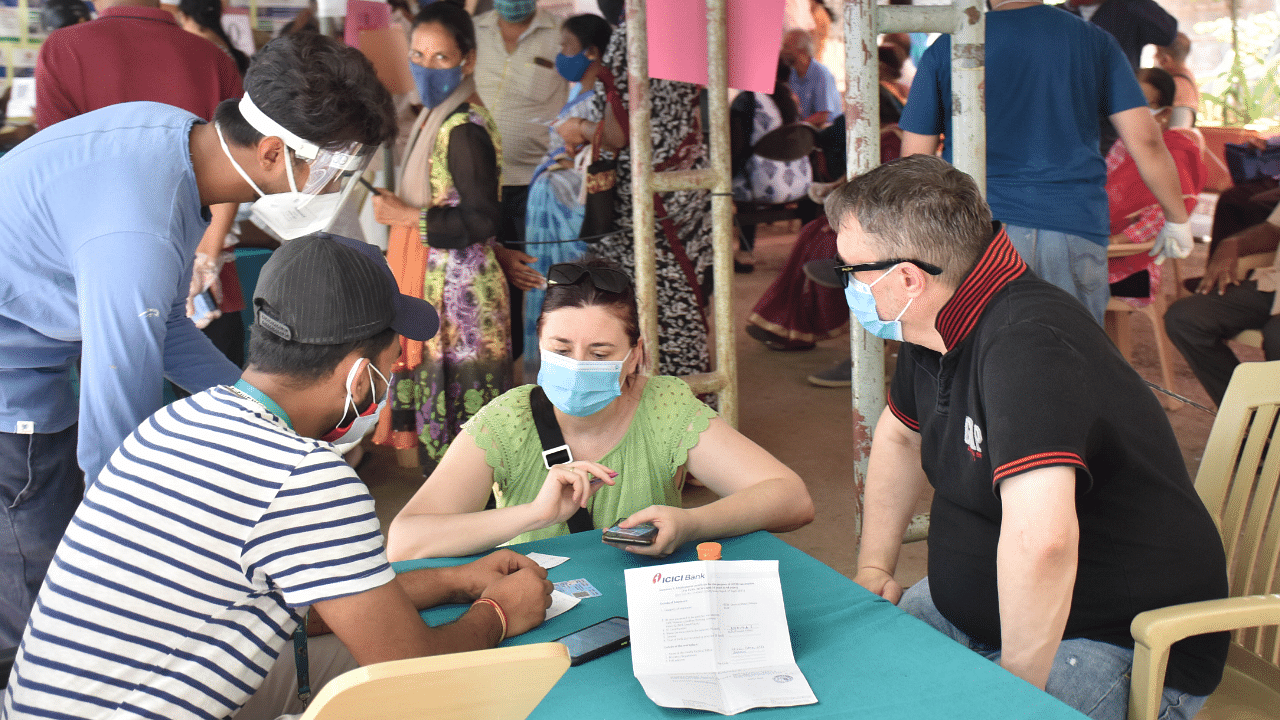
Experts have called for mini lockdowns to overcome the second wave of the pandemic and felt the need for technical groups to caution the government on the seven-day moving average of Covid-19 infections.
They were speaking at a panel discussion in the new edition of DH Sparks: ‘Navigating the second Covid-19 wave and the lessons to learn from it’ on Friday.
Eminent virologist Dr V Ravi said, “It is sad if whatever we created now (systems) are not sustained. People in the country deserve oxygenated and ICU beds, and we need to see to it that oxygen availability is there for the next one year. Our primary objective is to save lives. It is very difficult to save lives if there is no behavioural change. We can mitigate the third wave only if we start preparing from now.”
“Also, all interventions should be data driven. Experts’ advice should be taken seriously and all congregations, be it political or religious should be disallowed,” Dr Ravi added.
Biophysics Professor Gautam Menon, also one of the country’s foremost mathematical modellers, said, “Responsibility should shape social behaviour, going forward. Our communication has always been, do not do this or that. We should shift the narrative to ‘you can do all of this’, provided you follow these precautions and stay safe. Staying outside, wearing masks, is good.
Staying inside without ventilation is bad. In the short term, we can even avoid going out, till we climb this hill, but in the long term, I don’t see why we shouldn’t go out safely. We need to get our principles right.”
‘No more Covid models’
Epidemiologist Dr Ramanan Laxminarayan, Director, Centre for Disease Dynamics, Economics and Policy, said, “Obfuscation of data has happened from day one of the pandemic. You cannot build a system to respond to an epidemic when you are already in the middle of a crisis. You have to build it before. We had one chance last year, another in January, and we wasted it... I don’t model Covid anymore since it’s a waste of time. It made sense last February to know how bad things can get.”
“Two primary aspects that drive a model are - data, which researchers don’t have. Second, the primary driver of disease dynamics is human behaviour. As prevalence goes up, people protect themselves and as they do that, transmission comes down. This is a moving target. It’s a fool’s errand to run models now and fine tune it for reinfections and variants. My group does not work on models anymore in India,” he added.
Dr Vineeta Bal, Immunologist, Indian Institute of Science, Education and Research, Pune, said that there’s no data to say Covaxin effective against mutant virus
“Except for small-scale studies being conducted in the lab, there is no data to say Covaxin is effective against mutant variants of the virus. Those cannot be extrapolated. Even if you collect serum from 30 people, they will have various levels of antibodies and nobody is testing for T-cell response. So we have no idea what level of immunity they would have which would protect against reinfection,” Dr Bal said.
